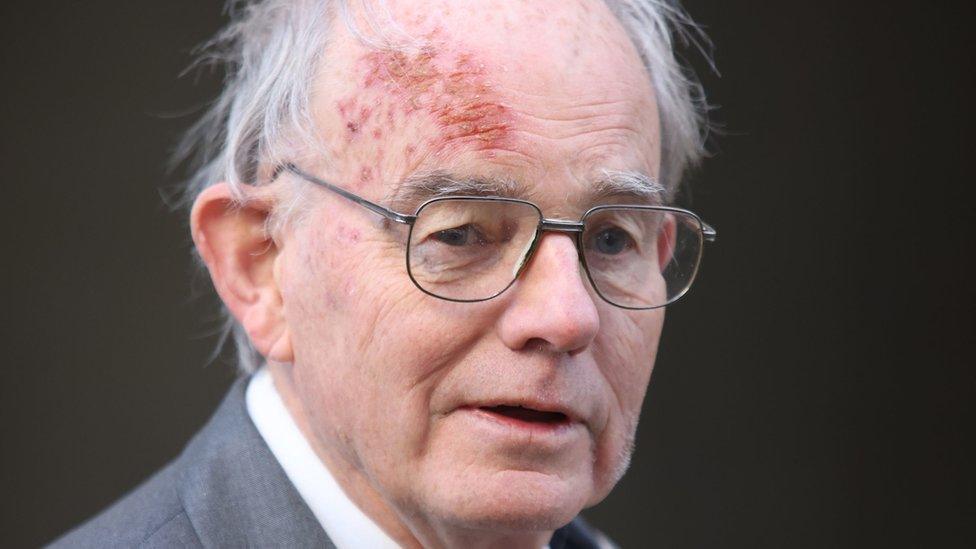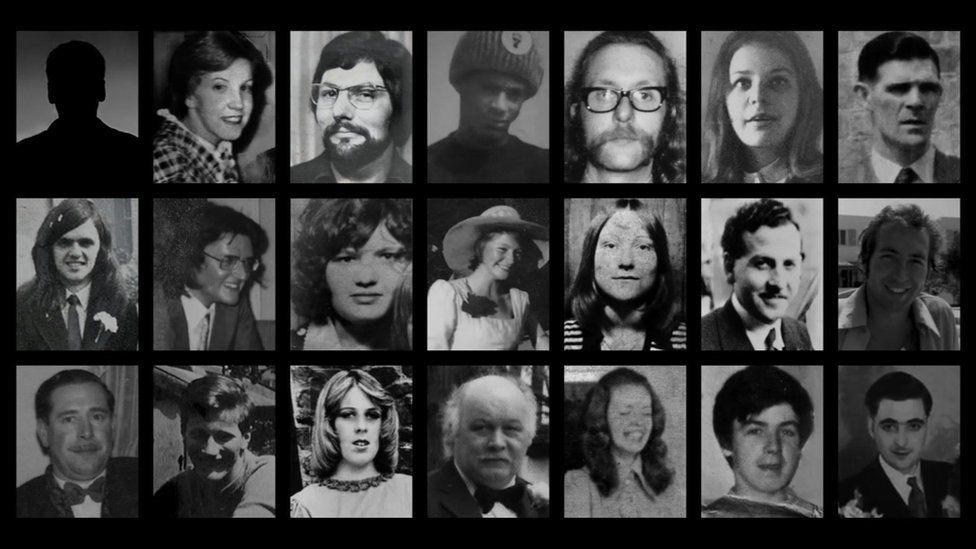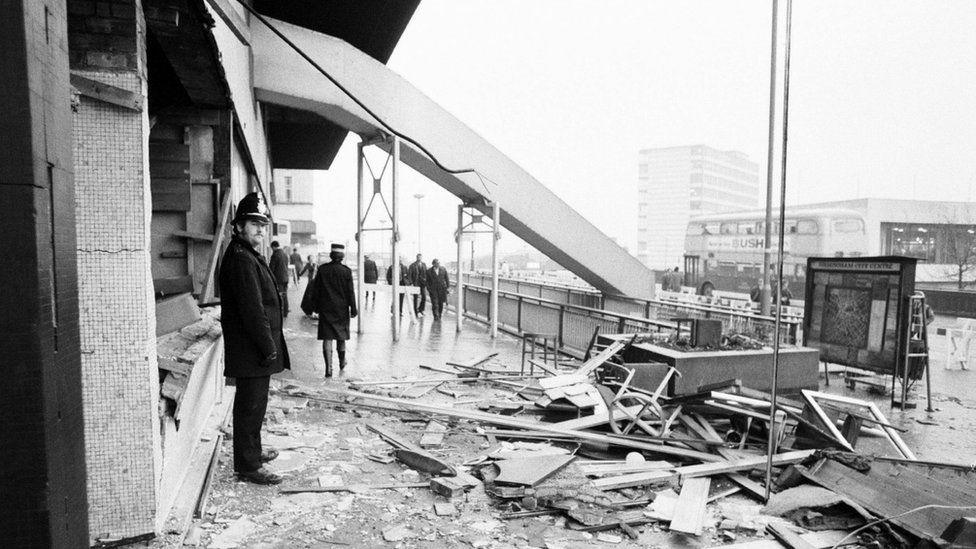Birmingham pub bombings: Fight over 'confession' to Chris Mullin
- Published

Chris Mullin helped expose the wrongful convictions of the Birmingham Six
Police want to force a journalist to reveal the source who made a "full confession to murder" over the Birmingham pub bombings, the Old Bailey heard.
The West Midlands force maintains information in Chris Mullin's notes could solve the 1974 atrocities.
But former MP Mr Mullin, 74, is challenging the police application to require him to disclose the material.
His team cites the journalistic principle of source protection.
In turn, barristers for the police say the benefit of a confession about the bombings outweighs any promise of anonymity to sources.
Mr Mullin helped expose the innocence of the so-called Birmingham Six, the men freed from prison in 1991 when their convictions over the deaths of 21 people were quashed.
No others have been brought to justice for the blasts at the Mulberry Bush and Tavern in the Town pubs on 21 November 1974, which also injured 220 people. West Midlands Police has said its investigation remains active.
The information sought by police pertains to investigations by Mr Mullin in 1985 to 1986.
A book plus documentaries from Mr Mullin contributed to the release of the Birmingham Six, but he has said he cannot reveal the identity of an IRA man who helped prove the miscarriage of justice.
An "inadequate" IRA warning call on the night of the bombings caused or contributed to the 21 deaths, an inquest jury found in 2019.

Twenty-one people were killed in two blasts in November 1974
James Lewis QC, representing West Midlands Police, told the Old Bailey on Friday that Mr Mullin had "provided material voluntarily" with redactions and omissions to protect the identity of the bomb planter, referred to in court as AB.
Mr Lewis said AB had made a confession that was voluntary, accurate and reliable, adding: "In short it is a full confession to the murders."
West Midlands Police knows who AB is and his proven links to the IRA. But Mr Lewis said the force now needed Mr Mullin's unredacted notes to link the "confession" to him.
"The current redacted notes [provided by Mr Mullin] are not of evidential value - once they are unredacted, they are of great evidential value," Mr Lewis told the court.
The barrister added Mr Mullin had conducted a four-hour interview with AB and made contemporaneous notes.
The benefit of the confession, he continued, was "enormous" and said it would outweigh that AB had extracted "a promise of anonymity".

The blasts ripped apart the Mulberry Bush pub at the base of the Rotunda and the Tavern in the Town on nearby New Street
In his witness statement, Mr Mullin - former MP for Sunderland South - said it was the "fundamental ethical obligation" of a reporter to protect the identities of their sources.
"My intention was to rescue the six men who I believed to be innocent and who had by this time been in prison for 12 years and who had no prospect of release," he said.
"It was also obvious from the outset that none of those involved in the bombings would talk to me if they thought I was merely collecting evidence on behalf of the police - although it must be said that, at the time, the West Midlands Police were entirely uninterested in pursuing any such line of inquiry."
To win over sources, Mr Mullins said he had to assure everyone he would not do anything which might identify them, and assurances "had to be given not merely to the guilty, but also to innocent intermediaries".
He added: "I am also confident that, even were I obliged to and did disclose the material being sought, it would not lead to the conviction of the perpetrator."
The National Union of Journalists (NUJ) is supporting Mr Mullin who said in his statement that protecting the identities of confidential sources was emphasised in the NUJ Code of Conduct "to which I have always and will always adhere".
Michelle Stanistreet, NUJ general secretary, said the case brought by police risked "compromising" the core principle of protecting sources at the heart of the NUJ code.
The Recorder of London Judge Mark Lucraft will consider the police's application after hearing submissions.

Follow BBC West Midlands on Facebook, external, Twitter, external and Instagram, external. Send your story ideas to: newsonline.westmidlands@bbc.co.uk, external